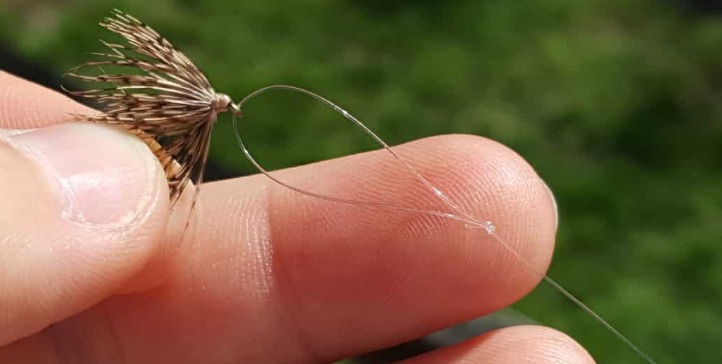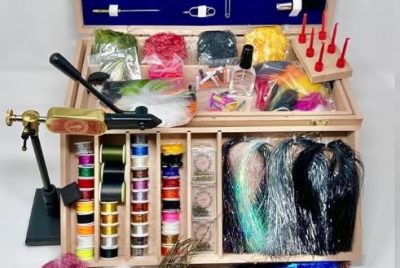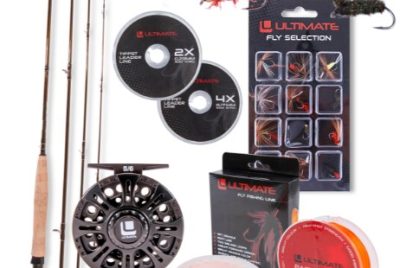Basic Fly Fishing Knots
Fly fishing, a serene and rewarding angling experience, demands more than just the right gear and a scenic location. One crucial aspect that often gets overlooked is the art of tying knots. As a devoted fly fishing enthusiast, I’ve delved into the world of basic fly fishing knots, discovering the importance of each knot in different scenarios. In this article, I’ll share my insights and recommendations, guiding both beginners and seasoned anglers through the intricacies of essential fly fishing knots.
Introduction
Brief Overview of Fly Fishing
Fly fishing is not just a hobby; it’s a passion that connects us to nature. The rhythmic cast of the fly line and the anticipation of a strike make it a unique and immersive experience.
Importance of Using Proper Knots in Fly Fishing
The strength and reliability of your knots can make the difference between a successful catch and a missed opportunity. Understanding basic fly fishing knots is paramount for any angler aiming for a seamless fishing experience.
Understanding Basic Fly Fishing Knots
The Arbor Knot
How to Tie the Arbor Knot
The Arbor Knot is a fundamental knot for attaching your backing to the reel. It’s simple yet secure, ensuring your line stays connected when the pressure is on.
Suitable Situations for Using the Arbor Knot

Ideal for setting up your reel initially or when you need to replace your fly line, the Arbor Knot is a versatile knot every fly angler should master.
The Improved Clinch Knot
Step-by-step Guide to Tying the Improved Clinch Knot
The Improved Clinch Knot is a go-to knot for securing your fly to the tippet. Follow these steps to tie it securely and avoid frustrating break-offs.
Advantages of Using the Improved Clinch Knot
Known for its simplicity and strength, the Improved Clinch Knot is reliable in various fishing situations, making it a favorite among fly anglers.
The Palomar Knot
Clear Instructions for Tying the Palomar Knot
The Palomar Knot is celebrated for its strength and ease of tying. Learn how to tie this knot to enhance the connection between your tippet and fly.
When to Opt for the Palomar Knot in Fly Fishing
Perfect for securing larger flies or when dealing with challenging fishing conditions, the Palomar Knot provides confidence in the reliability of your setup.
The Blood Knot
Detailed Steps for Tying the Blood Knot

The Blood Knot is essential for joining two pieces of leader material. Master the technique to create a seamless and strong connection.
Reasons for Choosing the Blood Knot in Specific Scenarios
When building leaders or attaching different strengths of tippet, the Blood Knot excels, ensuring a smooth transition and increased overall strength.
Tips for Knot Success
Importance of Knot Strength in Fly Fishing
The strength of your knots is directly proportional to the success of your fishing endeavors. Understanding the tensile strength of different knots is crucial for landing that trophy catch.
Common Mistakes to Avoid When Tying Knots
Avoiding common pitfalls, such as insufficient wraps or incorrect tag lengths, is essential for knot success. Learn from these mistakes to elevate your knot-tying skills.
Testing the Strength of Your Knots Before Hitting the Water
Before casting into the river, it’s vital to test the strength of your knots. A few simple pulls can save you from heartbreak when that big fish strikes.
Matching Knots to Different Fly Fishing Scenarios
Knots for Attaching Leader to Fly Line
Connecting your leader to the fly line requires a specific knot to ensure a smooth transfer of energy during the cast. Learn the knots suitable for this critical connection.
Knots for Connecting Tippet to Leader

The transition from leader to tippet demands precision. Explore the knots that provide a strong and reliable link, crucial for presenting your fly naturally.
Specific Knots for Securing Different Types of Flies
Different flies require different knots. Discover the knots that work best for securing dry flies, nymphs, and streamers, tailoring your approach to the fishing conditions.
Advanced Knot Techniques
Exploring Loop Knots for Added Flexibility
Loop knots offer increased fly movement, enhancing the overall presentation. Delve into the world of loop knots to add a touch of finesse to your fly fishing setup.
Combining Knots for Increased Strength
Sometimes, one knot isn’t enough. Learn how to strategically combine knots to create a robust and dependable connection, especially when targeting larger species.
How to Tie a Dropper Loop for Multiple Fly Setups
When the fish are selective, having multiple flies on your line can be a game-changer. Master the dropper loop for an effective multi-fly setup that entices even the most cautious trout.
Ensuring Knot Security
Tips on Properly Tightening Knots
The devil is in the details, especially when it comes to tightening knots. Discover the techniques for ensuring your knots are snug and secure, preventing unexpected failures.
The Role of Lubrication in Knot Tying

Lubrication plays a crucial role in knot tying. Learn why adding a bit of saliva or water can make a significant difference in the tightness and reliability of your knots.
Periodic Knot Checking While Fishing
A diligent angler checks their knots regularly. Develop a habit of inspecting your knots during your fishing session to avoid any surprises when battling a fish.
Troubleshooting Knot Issues
What to Do If a Knot Fails
Even the best anglers encounter knot failures. Know what to do when your knot lets you down, minimizing downtime and maximizing your chances of hooking the next fish.
Quick In-field Knot Repairs
A broken knot doesn’t mean the end of your fishing day. Equip yourself with quick in-field knot repair techniques to stay in the game and salvage the opportunity.
Knowing When to Re-tie Your Knots
Knots wear out over time, especially when battling strong fish or navigating rough underwater terrain. Learn the signs that indicate it’s time to re-tie your knots for optimal performance.
Personal Recommendations
Favourite Knots and Why
As a seasoned fly angler, I have my go-to knots for various situations. Discover my personal favorites and the reasons behind each choice.
Knot Preferences for Different Fly Fishing Conditions
Tailoring your knot selection to the fishing conditions can significantly impact your success. Gain insights into how I adapt my knot choices based on the environment.
Conclusion
Recap of Essential Fly Fishing Knots
In conclusion, mastering basic fly fishing knots is a journey worth undertaking. Recap the essential knots discussed and appreciate their significance in elevating your fly fishing experience.
Encouragement for Practice and Experimentation
Don’t be afraid to experiment with different knots and techniques. Practice makes perfect, and the more confident you become with your knot-tying skills, the more successful and enjoyable your fly fishing adventures will be.
FAQs
1. What is the most crucial fly fishing knot to master as a beginner?
For beginners, mastering the Improved Clinch Knot is paramount. It’s versatile, easy to tie, and provides reliable strength.
2. How often should I check my knots while fly fishing?
It’s advisable to check your knots every 20-30 minutes of fishing. Regular checks ensure your knots are secure, preventing unexpected failures.
3. Can I use the same knot for all types of flies in fly fishing?
While some knots work well for various fly types, it’s beneficial to learn specific knots tailored to dry flies, nymphs, and streamers for optimal performance.
4. What should I do if my knot fails while fighting a fish?
Stay calm. If a knot fails, quickly assess the situation. If possible, reel in the slack and retie the knot before resuming the fight.
5. Are loop knots necessary in fly fishing, or are they just for advanced anglers?
Loop knots can benefit anglers of all skill levels. They provide added flexibility to the fly, resulting in a more natural presentation that can entice even cautious fish.



